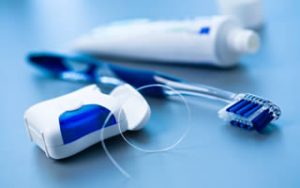A Look At Some Common Home Dental Mistakes
Basic oral care errors that could impact your teeth
 Do you pride yourself on looking after your teeth well? We hope that you do and are making the right decisions to take care of your oral health as best as you can. There are still many common mistakes that some people make though, or even things which they neglect to do altogether, whether through lack of knowledge or perhaps finding them inconvenient.
Do you pride yourself on looking after your teeth well? We hope that you do and are making the right decisions to take care of your oral health as best as you can. There are still many common mistakes that some people make though, or even things which they neglect to do altogether, whether through lack of knowledge or perhaps finding them inconvenient.
In today’s Cygnet Dental Practice blog, we will examine some of the everyday things that people do when looking after their teeth, some ways they can improve it and also a few little ‘extras’ that you may not have thought about.
The basics
There are probably very few of us that didn’t have “brush your teeth” drilled into us, often by exasperated parents. This is the most basic thing that we can do to rid our teeth and gums of the food particles and bacteria that would otherwise build up. How many of us do it right though? Please have a look at the ‘tick list’ below and see how many you are falling behind on.
1 – Do you brush your teeth for two minutes? – Although any brushing is better than no brushing at all, patients of our Wickford clinic will probably know by now that two minutes is the optimum time to brush them for. The reality may be that you think you do, but you actually don’t. Try setting a timer on your phone next time you brush your teeth, then brush them as you normally would and check how long it was. We suspect quite a few of you will be surprised. Also, don’t ‘scrub’ your teeth as this can wear the enamel down. An electric toothbrush with a pressure sensor will stop you from doing this.
2 – Do you brush correctly? – Many people simply ‘flat brush’ the tooth surface and though this will help to reduce some potential for staining, it leaves critical areas where bacteria can collect that will eventually start to decay if they have not been cleaned properly. Make sure to angle the bristles so that they can reach into the gum line and remove any deposits from there. Remember too to make a little extra effort to reach areas that are sometimes less well brushed, such as at the back of the rear teeth for example.
3 – Are you using the right tools? – You might think that you are but how old is your toothbrush or head of your electric toothbrush? If you are not sure then there is a good chance that it is older than three months and will therefore need to be replaced. Toothbrush bristles that have worn down are not effective enough at cleaning your teeth so make sure to replace every three months.
4 – Are you using dental floss? – The odds are that you aren’t as only around one in five of us do in the UK. We won’t go over old ground again but if you don’t currently floss, please do. It is hugely beneficial for your oral health.
Stay hydrated
Too many of us don’t drink enough water. A dry mouth is an ideal scenario for excessive bacterial growth and this may lead to gum disease. Make sure to stay well hydrated but equally importantly, make sure that you do this by drinking water and not sugary soft drinks as not only do these contain a lot of sugar but also tooth damaging acids that can cause enamel erosion.
Eating before bedtime
This is all too easy to do if you suddenly feel peckish before you go to bed. There is nothing wrong with a late night snack of course, unless you have already cleaned your teeth. Eating anything after you have done this will more or less negate the cleaning you have just done and leave your teeth with food particles trapped between them overnight. This is asking for trouble and you should make sure that nothing other than water passes your lips once you have completed your night time brushing (and hopefully flossing!) regime.
Keep your brush away from the loo (and never share)
Where do you store your toothbrush? If your toilet is in the same room as where you brush your teeth, make sure to keep it as far away from the toilet as possible. When you flush a toilet, some aerosol is inevitably caused and this can come into contact with your toothbrush; not a pleasant thought. Some people use toothbrush protectors but we don’t advise this as it creates a warmer environment and an increase in bacteria is likely.
Especially if your toothbrush is in this location, it is a good idea to clean the bristles, not only by running fresh water over them when you have finished brushing but by occasionally soaking for a short period in antibacterial mouthwash or by dipping it in boiling water for a few seconds. Don’t do this for too long though or the plastic handle might start to melt.
Make sure too, never to share your toothbrush with anyone, not even family members. This is a sure way to pass on infections and should be avoided at all costs.
Finally, check your diary to make sure that you have both dentist and hygienist appointments booked. If you don’t, please take action today. You can contact the Cygnet Dental Practice by calling us on 01268 733078.
